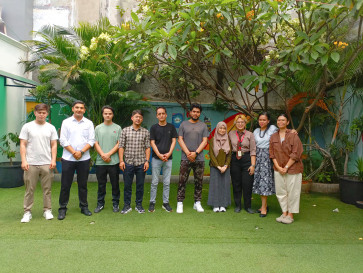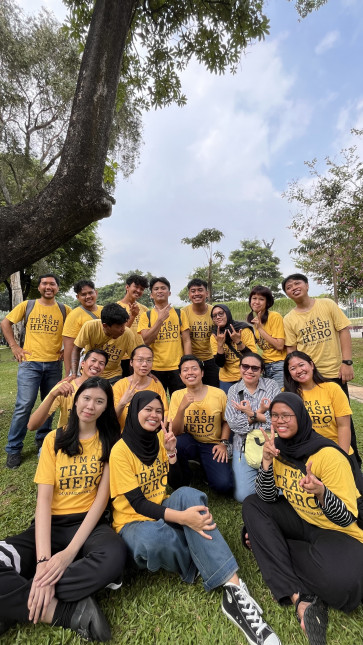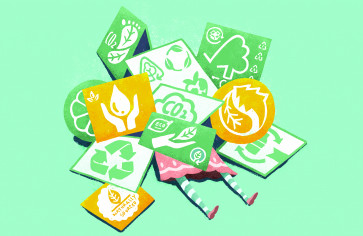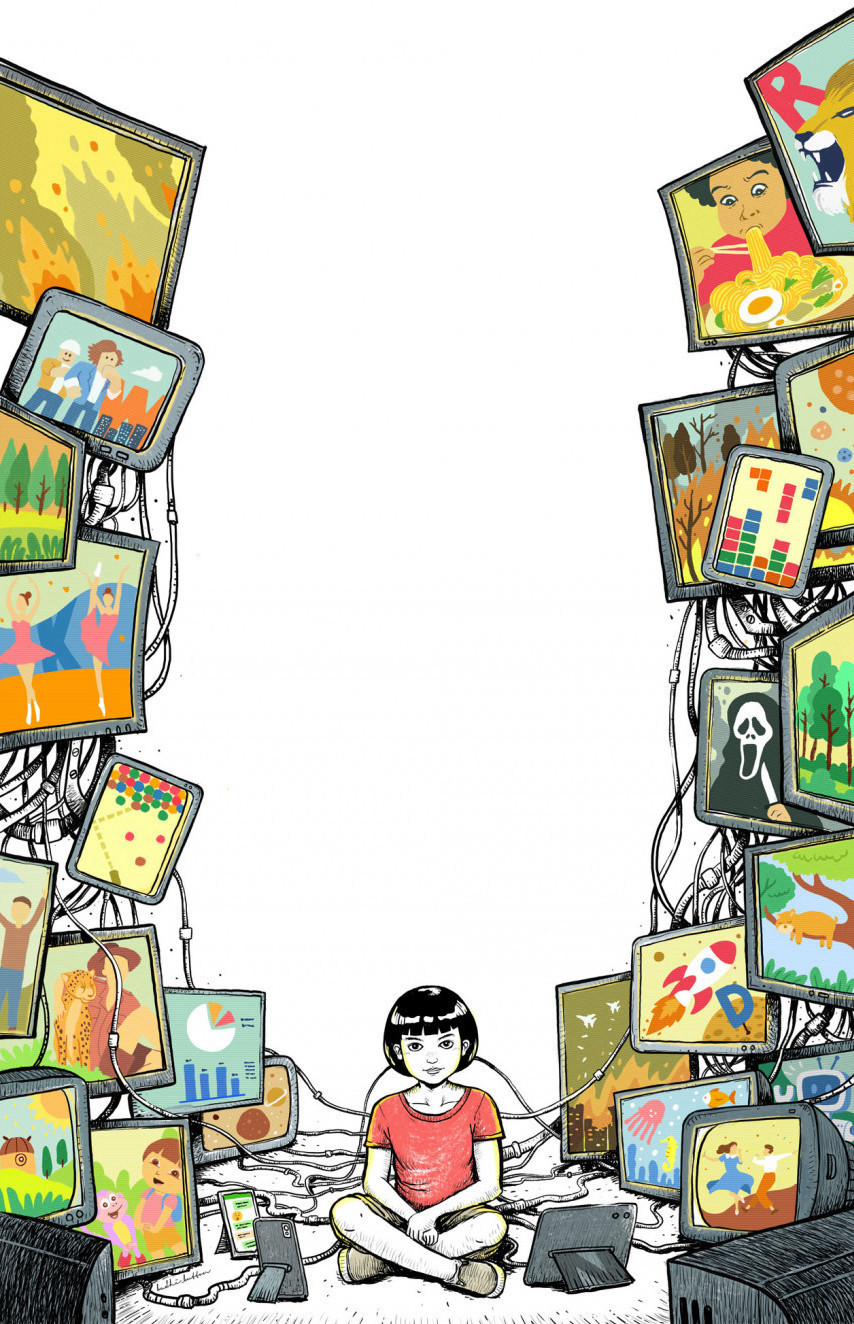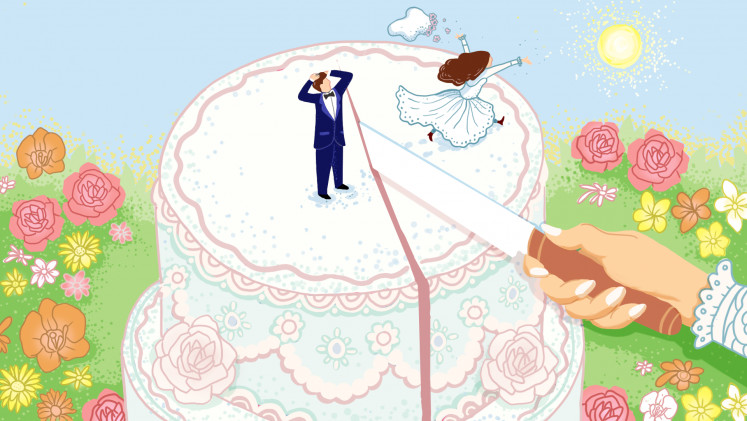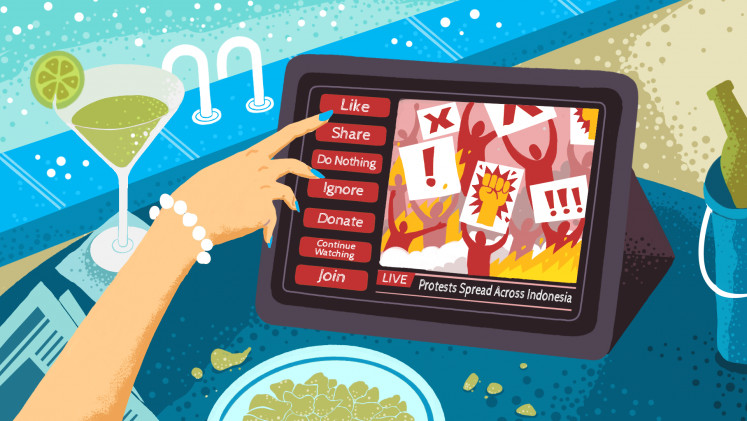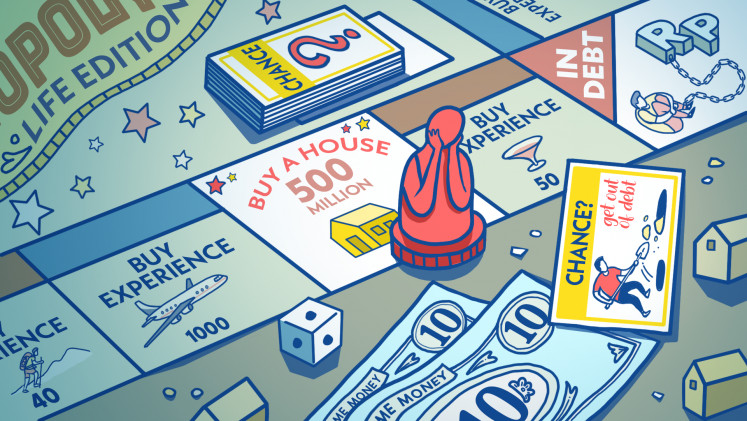Feral, illiterate and doomed: And no, that does not describe a threatened species online pundits are braying about. They are the future of humanity.
Much has been written and said about Generation Alpha, the successor to Gen Z born between 2010 and 2024, and their behavior. From running amok in makeup stores while snatching antiaging serums to creating increasingly arcane words and memes, the popular consensus seems to be that these kids are not alright.
Of course, some hyperbole and hysteria are involved in the creation of this narrative, but there are legitimate causes for concern.
There has been minimal research on Indonesia’s Gen Alpha, but indications of where things are headed might be gleaned from our students’ score in the 2022 Programme for International Student Assessment (PISA).
The assessment, which tests 15-year-old students on their science, math and reading skills, found that the 2022 results were “among the lowest ever measured by PISA in all three subjects”.
Although the students who took the test are technically still part of Gen Z and the country’s education system shares much of the blame, the results raise red flags for our future presidents and leaders, who are probably watching Roblox playthroughs and “Skibidi Toilet” videos on their iPads right now.

Thank you!
For signing up to our newsletter.
Please check your email for your newsletter subscription.
What happened?
According to Maria Dwindita, a clinical psychologist at Siloam Hospitals and EMC Healthcare, both Gen Z and Gen Alpha are alike, but their differences are stark when compared to millennials.
Gen Alpha kids are born in an era of rapid digitalization where every part of their lives, including education, is connected to technology. Millennials, on the other hand, grew up with that technology still developing.
“There is a tendency for Gen Alpha to be hyperconnected to the outside world, even internationally. In reality however, their connection to their surroundings like their friends at school or even their family members at home is very minimal,” she says.
While this may be a product of growing up in an increasingly online world, the situation was exacerbated by the world shutting down during the COVID-19 pandemic, adding learning loss and loneliness to a rather bleak outlook.
The growing acceptance of “digital babysitters” among millennial parents is also playing a part in the change. Whereas soothing children by singing lullabies used to be the norm, tablets and phones are increasingly being used to keep them occupied.
“In a sense, that digital sphere becomes the problem-solver of every parent-child conflict. The role even becomes larger than those of the parent, like how you see tables full of children glued to tablets, watching YouTube videos in malls. The [thing] that calms them down is no longer the presence of the mother or father, but rather the gadgets,” says Maria.
It is perhaps not surprising that parents and teachers alike complain about their lack of attention span, born of short-form videos that have increasingly taken over screens worldwide. Maria notes that many people mistakenly conflate this short attention span with ADHD, or attention deficit hyperactivity disorder, which is a neurodevelopmental disorder and not something caused by taking part in too many TikTok challenges.
“What has happened is that they are not used to focusing on one thing at a time. We used to get bored watching a two-hour movie, but we stuck until the end. Now, once they get bored, they’ll just skip to the next one,” she explains.
Read also: Rafael Nadal and Richard Mille redefine watchmaking
Deeper issues
When schools reopened post-pandemic and students gradually made their way back into the classroom, some struggled to adapt to sensory stimulations that are the norm outside of Zoom sessions in their bedrooms.
According to Maria, the children who struggled to adapt saw their rooms as their comfort zone, and the rapid, sudden return to in-person classes led to clinical problems, including anxiety and depression.
“The onset of depression is coming at increasingly younger ages. Whereas the earliest [onset] before would have been at 12 or 13 [years], depression can now show up in even kindergarteners,” she says.
Perhaps related to this is how Gen Alpha children are becoming more vulnerable to stressors. For example, when two friends get in a fight, their friendship could come to a natural end and they go on to find new friends.
Today, children tend to overthink that conflict, according to Maria. This may feed a vicious cycle: If children do not have a close relationship with their parents, their only emotional outlet will be social media, which in turn may lead to even more problems.
Still, there’s reason for hope due to the increasing awareness and normalization of mental health issues.
A report by Florida-based generational research group Cassandra has found that 59 percent of Gen Alpha believes mental health to be a major issue, with 62 percent saying their schools should focus more on mental health education rather than physical education.
But mental health issues are not a generation-wide problem. Pratima Kalra, a 4th-grade teacher at Mentari Intercultural School in Jakarta, says she has found many of her students are more involved and very responsible since COVID-19. Those who had issues were those who went through the trauma of seeing family and friends suffer during the pandemic.
“They love coming to school. And they enjoy going out for their holidays. They look forward to going out for field trips. So definitely, they were stuck at home and they didn't like being stuck at home. They want to come to school and they want to interact with their friends. That's where their life is,” she says.
Read also: Turning privilege to purpose
Positive direction
Kalra, who has been a teacher since 2016 interacting with millennials, Gen Z and Gen Alpha, notes that schools have to adapt to the changes in their students.
Long gone are the days where the teacher is always right. Gen Z and Gen Alpha were brought up to question things around them, blind compliance be damned.
Maria says students today can’t be told simply to obey. “We have to explain what the objectives are, why they have to study math [...] what its use is in the future,” she says.
For some educators, this isn’t necessarily a bad thing. Kalra now finds herself having to engage her students’ curiosity, as the key to helping them learn is to encourage them to be more involved.
“If you cannot cater to their curiosity as an adult, they will not listen to you. But if you can cater to their curiosity, if you can involve them, if you can sensitize them about issues, then they are superb. They don't need to really comply,” she says.
And what, pray tell, are occupying their heads and making them curious?
“When I was a child or even when Gen Z was in school, we only read about things like sustainability in books. We memorized the answers and wrote exams, and that was it. But this generation is actually living by practicing sustainability,” Kalra explains.
As the world increasingly becomes a not-so-lovely place to live in, the younger generation is realizing that they need to salvage what’s left of it. So it only makes sense that they are more sensitive about climate change as the heir apparent of the planet we’ve created.
Surveys actually prove this. EY’s Generational Sustainability Survey 2023 has found that 24 percent of Gen Alpha are “very aware or extremely aware of global environmental practices”, compared to 17 percent of Gen Z, 15 percent of millennials, 10 percent of Gen X and 4 percent of baby boomers.
However, the same study also found that when it came to being “extremely willing or very willing to make changes in their daily life to be more sustainable”, Gen Alpha trailed at 43 percent. By comparison, millennials and Gen X led the charge at 65 percent and 64 percent respectively, while baby boomers and Gen Z were tied at 44 percent.
So are Gen Alpha kids really feral, illiterate and doomed? Or are they the misunderstood future of humanity?
“I mean, every generation blames the previous generations for something [...] But they will hold us accountable for all of these, for climate change and however the world is being impacted. I think we should be ready for that,” Kalra says.
So brace yourself: They’re coming.
Read also: Making space for aesthetics, functionality and personality
This article is part of The Weekender, a biweekly tabloid that appears in the Saturday edition of The Jakarta Post. Offering a variety of feature articles on lifestyle and culture, it aims to enriching your reading experience. Subscribe here to access The Jakarta Post's Saturday edition and all Premium content.






